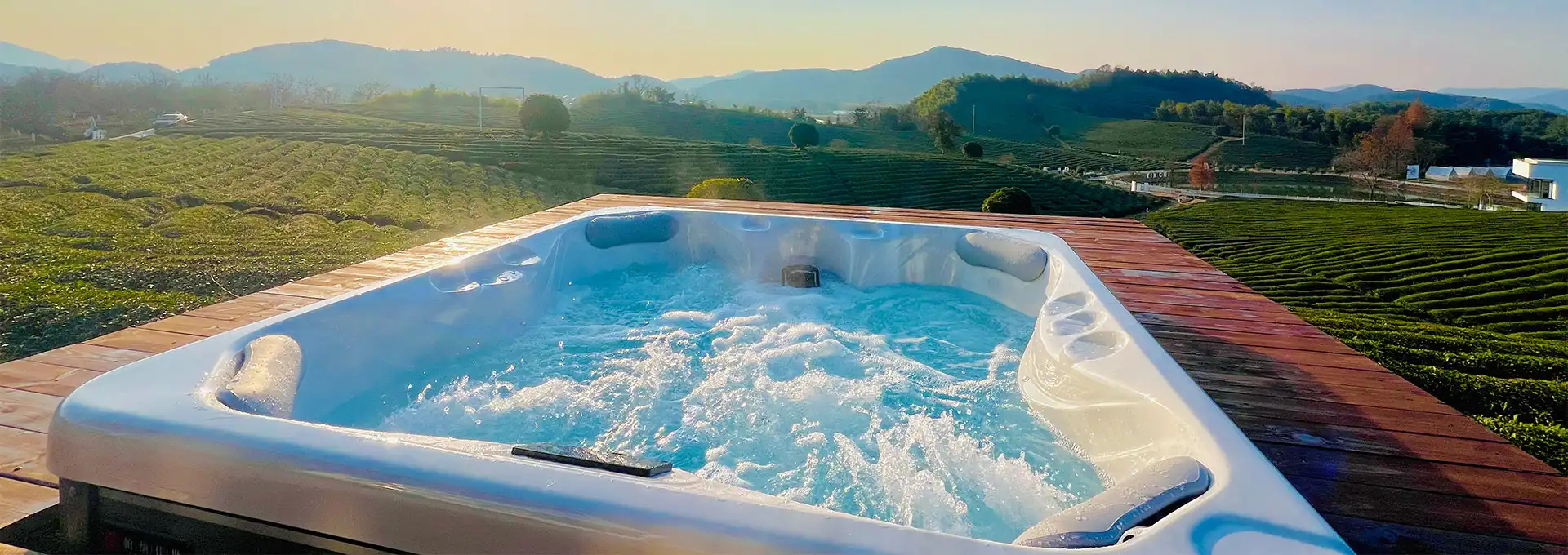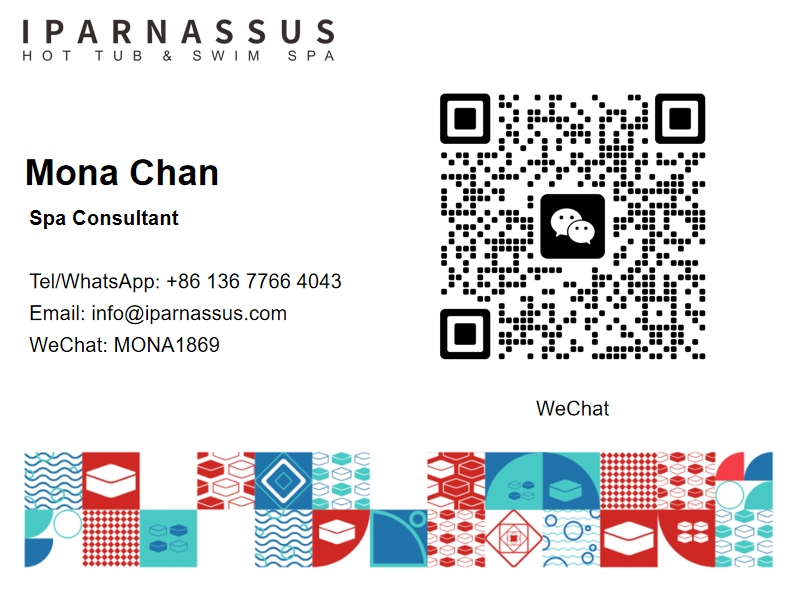How Much Does a Hot Tub Increase Electric Bill?
2024-07-16 17:14:42
The addition of a hot tub to your home can be a luxurious and relaxing investment, but it's important to consider the potential impact on your electric bill. Many homeowners wonder about the additional costs associated with running a hot tub, particularly in terms of electricity consumption. In this blog post, we'll explore how much a hotel hot tub can increase your electric bill and provide insights into factors that influence energy usage. We'll also discuss ways to minimize the impact on your electricity costs while still enjoying the benefits of your hot tub.
Are hotel hot tubs sanitary?
When it comes to hotel hot tubs, cleanliness and sanitation are common concerns for many travelers. While hotels strive to maintain their hot tubs to high standards, the reality is that these communal facilities can pose certain health risks if not properly managed.
Hotel hot tubs are designed for multiple users, which means they can potentially harbor various bacteria, viruses, and other microorganisms. The warm water temperature, combined with the presence of organic matter from users' bodies, creates an environment where certain pathogens can thrive. Common issues associated with poorly maintained hot tubs include skin rashes, respiratory problems, and gastrointestinal illnesses.
However, it's important to note that reputable hotels take significant measures to ensure their hot tubs are sanitary. These measures typically include:
1. Regular cleaning and disinfection: Hotels should clean and disinfect their hot tubs daily, if not more frequently, using appropriate chemicals and cleaning methods.
2. Water testing: Regular testing of water quality helps maintain proper pH levels and chlorine or bromine concentrations, which are crucial for killing harmful microorganisms.
3. Filtration systems: Modern hot tubs are equipped with efficient filtration systems that continuously clean the water.
4. Adherence to health regulations: Hotels must comply with local health department regulations regarding the maintenance and operation of public hot tubs.
5. User guidelines: Many hotels provide guidelines for guests, such as showering before entering the hot tub and limiting the time spent in the water.
Despite these precautions, it's always advisable for guests to exercise some caution when using hotel hot tubs. Here are some tips for ensuring a safer experience:
1. Observe the water: If the water appears cloudy, has a strong odor, or contains visible debris, it's best to avoid using the hot tub.
2. Check for inspection records: Many hotels display their most recent health inspection results near the hot tub area.
3. Avoid swallowing water: Try not to ingest any hot tub water, as this increases the risk of waterborne illnesses.
4. Limit your time: Extended exposure to hot water can lead to dehydration and overheating.
5. Shower afterwards: Rinse off after using the hot tub to remove any potentially harmful bacteria from your skin.
While hotel hot tubs can be a relaxing amenity, it's essential to be aware of the potential risks and take appropriate precautions. By being mindful of these factors, you can enjoy the experience while minimizing health concerns.
How hot should a hotel hot tub be?
The temperature of a hotel hot tub is a crucial factor that affects both user comfort and safety. While personal preferences may vary, there are industry standards and guidelines that hotels typically follow to ensure a pleasant and safe experience for their guests.
The ideal temperature range for a hotel hot tub is generally between 100°F and 104°F (37.8°C to 40°C). This range provides a comfortably warm experience without posing significant health risks to most users. However, it's important to note that the maximum temperature recommended by the U.S. Consumer Product Safety Commission (CPSC) is 104°F (40°C).
Several factors influence the determination of the optimal hot tub temperature:
1. Safety considerations: Temperatures above 104°F can lead to various health issues, including heat exhaustion, dehydration, and even heat stroke in extreme cases.
2. Comfort level: While some users may prefer higher temperatures, most find the 100-104°F range to be comfortable without being overwhelming.
3. Energy efficiency: Maintaining lower temperatures can help reduce energy consumption and operating costs for the hotel.
4. Local regulations: Some jurisdictions have specific requirements for public hot tub temperatures, which hotels must adhere to.
5. User demographics: Hotels catering to families or older guests may opt for slightly lower temperatures to accommodate a wider range of users.
It's worth noting that pregnant women, young children, and individuals with certain medical conditions should consult with a healthcare professional before using hot tubs, as they may be more sensitive to high temperatures.
Hotels typically use thermostats and temperature control systems to maintain consistent water temperatures. Regular monitoring and adjustments are necessary to ensure the hot tub remains within the appropriate range. Many modern hot tubs also feature digital displays that allow users to check the current water temperature before entering.
For guests using hotel hot tubs, here are some temperature-related tips:
1. Check the temperature: If the hot tub has a visible temperature display, verify that it's within the safe range before entering.
2. Limit your time: Even at safe temperatures, it's advisable to limit hot tub sessions to 15-20 minutes to avoid overheating.
3. Stay hydrated: The warm water can lead to increased sweating and fluid loss, so it's important to drink water before and after using the hot tub.
4. Listen to your body: If you start feeling uncomfortable, dizzy, or overheated, exit the hot tub immediately.
5. Be cautious with alcohol: Consuming alcohol before or during hot tub use can impair your judgment and increase the risk of dehydration or overheating.
Hotels should also provide clear signage near the hot tub area, informing guests about the current water temperature, safety guidelines, and any specific rules or recommendations. This information helps ensure that guests can make informed decisions about using the facility.
While the ideal temperature range for hotel hot tubs is generally 100-104°F, it's essential to remember that individual comfort levels may vary. Hotels strive to find a balance that caters to the majority of their guests while prioritizing safety and adhering to industry standards and local regulations.
What are the benefits of using a hotel hot tub?
Hotel hot tubs offer a range of benefits that can enhance your travel experience and provide both physical and mental relaxation. Whether you're on a business trip, a romantic getaway, or a family vacation, taking advantage of a hotel's hot tub amenity can add significant value to your stay.
1. Stress relief and relaxation:
One of the primary benefits of using a hotel hot tub is its ability to promote relaxation and reduce stress. The warm water and jet massages help to soothe tense muscles and alleviate mental tension. After a long day of sightseeing, business meetings, or travel, soaking in a hot tub can be an excellent way to unwind and prepare for a restful night's sleep.
2. Pain relief and muscle recovery:
For travelers dealing with muscle soreness, joint pain, or general body aches, a hot tub session can provide significant relief. The combination of heat and buoyancy helps to increase blood flow, reduce inflammation, and ease tension in the muscles and joints. This can be particularly beneficial for those who have engaged in physical activities during their trip or who suffer from chronic pain conditions.
3. Improved sleep quality:
Using a hot tub before bedtime can contribute to better sleep quality. The relaxation induced by the warm water, coupled with the subsequent drop in body temperature after exiting the hot tub, can help signal to your body that it's time to sleep. This can be especially helpful for travelers dealing with jet lag or adjusting to a new time zone.
4. Social interaction:
Hotel hot tubs often serve as social hubs, providing an opportunity to meet and interact with other guests. For solo travelers or those looking to make new connections, the hot tub area can be a comfortable and casual setting for striking up conversations and sharing travel experiences.
5. Cardiovascular health:
While not a substitute for regular exercise, spending time in a hot tub can have some cardiovascular benefits. The heat causes blood vessels to dilate, which can lead to improved circulation. Some studies suggest that regular hot tub use may help lower blood pressure for some individuals, although it's important to consult with a healthcare provider if you have any cardiovascular concerns.
While hotel hot tubs offer numerous benefits, it's important to use them responsibly and in moderation. Always follow the hotel's guidelines for hot tub use, be mindful of any personal health conditions that might be affected by hot tub use, and prioritize hygiene by showering before and after your session.
By taking advantage of the hotel hot tub during your stay, you can enhance your travel experience, promote relaxation, and potentially improve your physical and mental well-being. Whether you're seeking stress relief, pain management, or simply a luxurious way to unwind, a hotel hot tub can be a valuable amenity that contributes to a more enjoyable and memorable trip.
If you want to get more information about this product, you can contact us at info@iparnassus.com!
References:
1. U.S. Consumer Product Safety Commission. (2021). "Safety Barrier Guidelines for Residential Pools."
2. Centers for Disease Control and Prevention. (2022). "Healthy Swimming/Recreational Water."
3. World Health Organization. (2006). "Guidelines for safe recreational water environments. Volume 2: Swimming pools and similar environments."
4. American Journal of Physiology. (2016). "Passive heat therapy improves endothelial function, arterial stiffness and blood pressure in sedentary humans."
5. Sleep Foundation. (2022). "How a Hot Bath Can Help You Sleep."
6. Journal of Physiological Anthropology. (2012). "Effects of bathing and hot footbath on sleep in winter."
7. International Journal of Aquatic Research and Education. (2014). "Physiological Effects of Immersion and Aquatic Exercise."
8. Journal of Athletic Training. (2013). "Effectiveness of Water Immersion on Postmatch Recovery in Elite Professional Footballers."
9. Arthritis Research & Therapy. (2009). "Spa therapy for ankylosing spondylitis: a systematic review."
10. Environmental Health Perspectives. (2016). "Take the Heat: Health Effects of Climate Change and Heat Exposure."
Send Inquiry
Related Industry Knowledge
- Can a Swim Spa Be Hot and Cold?
- Is the Hot Tub Good for Sore Muscles?
- Can You Put a Swim Spa in a Basement?
- How Much Does a Swim Spa Cost?
- How to Install a Swim Spa in Your Backyard?
- Should I Get a Hot Tub or a Swim Spa?
- How Large are Hot Tubs?
- How to Lower Alkalinity in Swim Spa?
- How to Install Swim Spa In Ground?
- Why Should You Buy Hot Tub From IPARNASSUS
_1768872582663.webp)


